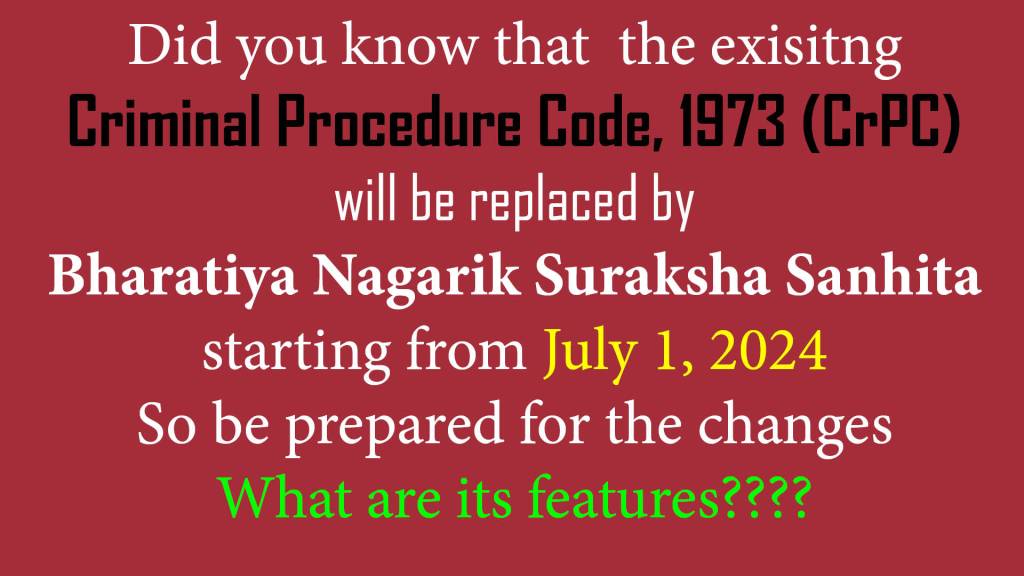The Bharatiya Nagarik Suraksha Sanhita, 2023

Highlights of the Bill
The Bharatiya Nagarik Suraksha Sanhita, 2023 (BNSS) seeks to replace the Criminal Procedure Code, 1973 (CrPC). The CrPC provides for the procedure for arrest, prosecution, and bail.
BNSS mandates forensic investigation for offences punishable with seven years of imprisonment or more. Forensic experts will visit crime scenes to collect forensic evidence and record the process.
All trials, inquiries, and proceedings may be held in electronic mode. Production of electronic communication devices, likely to contain digital evidence, will be allowed for investigation, inquiry, or trial.
If a proclaimed offender has absconded to evade trial and there is no immediate prospect of arresting him, the trial can be conducted and judgement pronounced in his absence.
Along with specimen signatures or handwriting, finger impressions and voice samples may be collected for investigation or proceedings. Samples may be taken from a person who has not been arrested.
Key Issues and Analysis
The BNSS allows up to 15 days of police custody, which can be authorised in parts during the initial 40 or 60 days of the 60 or 90 days period of judicial custody. This may lead to denial of bail for the entire period if the police has not exhausted the 15 days custody.
The powers to attach property from proceeds of crime does not have safeguards provided in the Prevention of Money Laundering Act.
The CrPC provides for bail for an accused who has been detained for half the maximum imprisonment for the offence. The BNSS denies this facility for anyone facing multiple charges. As many cases involve charges under multiple sections, this may limit such bail.
The use of handcuffs is permitted in a range of cases including economic offences, contradicting Supreme Court directions.
The BNSS allows evidence collected by retired or transferred investigating officers to be presented by their successors. This violates normal rules of evidence when the author of the document can be cross examined.
Recommendations of high level committees on changes to the CrPC such as reforms in sentencing guidelines and codifying rights of the accused have not been incorporated in the BNSS.
Leave a comment